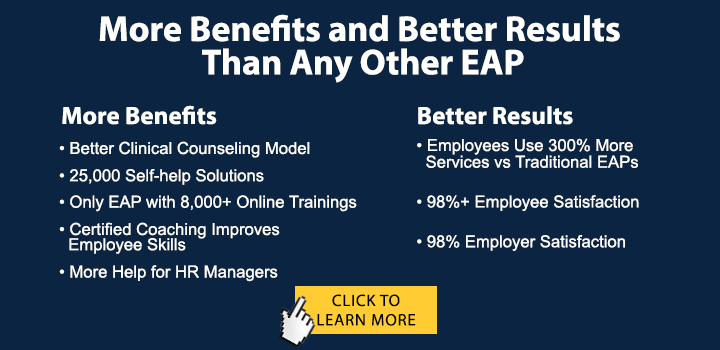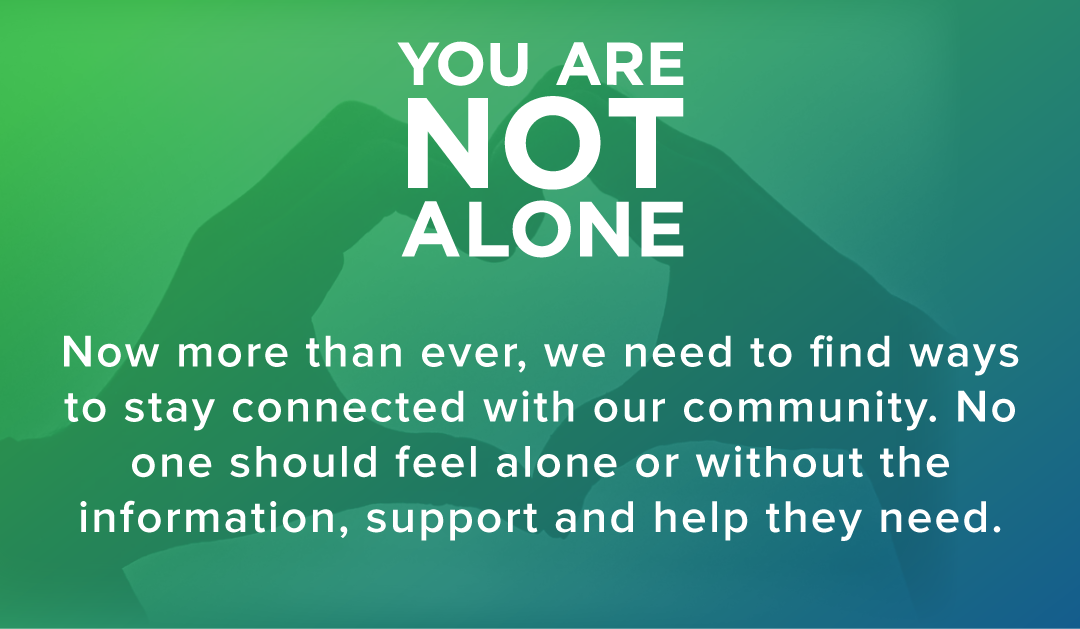The pandemic has been difficult for everyone, but particularly so for anyone who is coping with a mental health illness. Isolation, stress, grief, financial concerns, loss of normal life routines, and more have added challenges and pressures. May is Mental Health Awareness Month, sponsored by the National Alliance on Mental Health (NAMI) and the 2021 theme is “You are not alone.” NAMI says:
“Each year millions of Americans face the reality of living with a mental illness. During May, NAMI joins the national movement to raise awareness about mental health. Each year we fight stigma, provide support, educate the public and advocate for policies that support people with mental illness and their families.”
The promise that the vaccine holds to help us return to a more normal lifestyle is very hopeful, but mental health professionals say that for many, this ushers in new problems. Resumption of pre-pandemic activities will be welcomed by many but challenging and stressful for others. Plus, some experts who have studied pandemics and their aftermath point to a post-pandemic stress disorder.
When to seek help
How do you know if you or someone you love needs help? If you have a pain or bodily ailment that persists or that interferes with your daily living, you seek out a doctor. Seeking mental health care should be much the same: get help to get well.
NAMI offers signs and symptoms that should be an alert to seek help. They note that each illness has its own symptoms, but common signs of mental illness in adults and adolescents can include the following:
- Excessive worrying or fear
- Feeling excessively sad or low
- Confused thinking or problems concentrating and learning
- Extreme mood changes, including uncontrollable “highs” or feelings of euphoria
- Prolonged or strong feelings of irritability or anger
- Avoiding friends and social activities
- Difficulties understanding or relating to other people
- Changes in sleeping habits or feeling tired and low energy
- Changes in eating habits such as increased hunger or lack of appetite
- Changes in sex drive
- Difficulty perceiving reality (delusions or hallucinations, in which a person experiences and senses things that don’t exist in objective reality)
- Inability to perceive changes in one’s own feelings, behavior or personality (”lack of insight” or anosognosia)
- Overuse of substances like alcohol or drugs
- Multiple physical ailments without obvious causes (such as headaches, stomach aches, vague and ongoing “aches and pains”)
- Thinking about suicide
- Inability to carry out daily activities or handle daily problems and stress
- An intense fear of weight gain or concern with appearance
See more on Warning Signs and Symptoms that point to a need to reach out for help. Also, see our recent post on Mental Health and Depression Awareness for signs specific to depression.
Getting help for your mental health
Help is available for mental illnesses and it can be highly effective in providing relief. Depression and other mental health illnesses don’t have to be unbearable if you reach out to get help. If you or a family member is suffering from depression or any other mental health issue, why not get help?
If you are a Member of ESI EAP, learn more about the excellent counseling services available to you and your family 24 hours a day, 7 days a week, 365 days a year. In addition to telephonic in-the-moment counseling, you can access telehealth and video and counseling, coaching and training programs to help you address any underlying issues causing stress or problems, and a comprehensive self-help center with 25,000+ resources. Here are some blog posts we’ve written about mental health during the pandemic:
- When everything seems overwhelming …
- Covid19 highlights importance of an Employee Assistance Program, mental health benefits
- Mental Health Awareness in the Time of Covid19
If you are not a member of ESI EAP, here are other resources that may help.
- NAMI – Find help and support for individuals with mental illness; family members and caregivers; teens & young adults; veterans & active duty; and front-line professional.
- Mental Health America – The nation’s leading community-based nonprofit dedicated to addressing the needs of those living with mental illness and to promoting the overall mental health of all Americans. Access a wide variety of education and help tools including DIY tools and Mental Health Screenings.
- National Suicide Prevention Lifeline – The Lifeline provides 24/7, free and confidential support for people in distress, prevention and crisis resources for you or your loved ones, and best practices for professionals. 1-800-273-8255.
- Right Direction – When you feel lost, life can seem overwhelming. But where there’s hope, support, and resources, you can find your way. This site from the American Psychiatric Association Foundation offers tools and resources for both employees and employers.
- HelpGuide – Independent, not-for-profit site with a mission of providing empowering, evidence-based information you can use to help yourself and your loved ones improve mental health and make healthy changes.
- Emotional Wellness Toolkit – from the National Institutes of Health offers 6 strategies for improving your emotional health.


